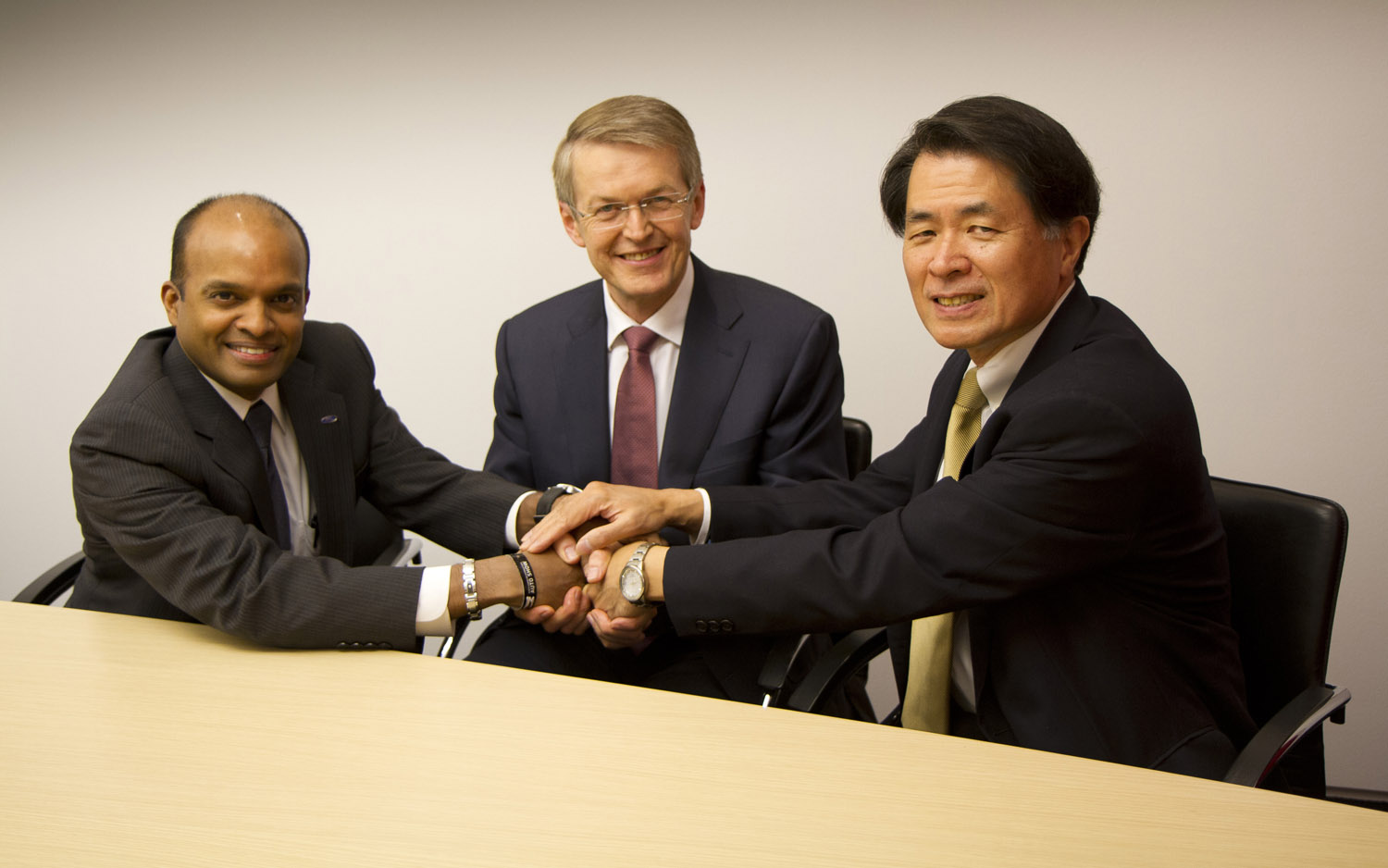Daimler, Ford and Nissan alliance for hydrogen

We talked last week about a major partnership agreement between BMW and Toyota that will see them collaborating on several projects including designing a new sports car as well as technology for next-gen hydrogen fuel cell-powered vehicles.
Today we’ll be talking about a somewhat similar agreement, this time between three entities, Daimler, Ford and Nissan.
This unique three-way alliance was put together to have the three leading global automakers work together on a common hydrogen fuel system meant to power future zero-emission vehicles. They’re aim is to launch the world’s first affordable, mass-market hydrogen-powered vehicles within five years and in doing so to help define the global specifications as well as component standards.
The three companies will all invest equal amounts towards the project, thus reducing the costs associated with engineering such technology by any one single company, and also maximizing design commonality and deriving efficiencies through economies of scale.
The three said in a joint statement that their agreement is meant to send a very clear signal to everyone from suppliers, to policy makers and to the automotive industry at large to encourage further development of hydrogen fuelling stations as well as other infrastructure that is required for the technology to become mass-marketed.
The three companies already have some experience with fuel cell vehicles, having tested their own technologies independently for years, but this agreement is meant to bring more than sixty years of cumulative experience together and make something much-much better.
The idea is that this collaboration will speed up the introduction of hydrogen technology across the globe, because pretty much all the top players in the car-making industry can see that zero-emission mobility is the only true way of the future.
The basic technology behind the idea of hydrogen-powered vehicles is that the vehicle will generate electricity via an on-board fuel cell stack through an electrochemical reaction between hydrogen – which will be stored in a high-pressure tank – and oxygen taken from the air. The driving range of such vehicles will be comparable to that of petrol-powered vehicles with the added bonus that the only by-products will be water vapor and heat.

















